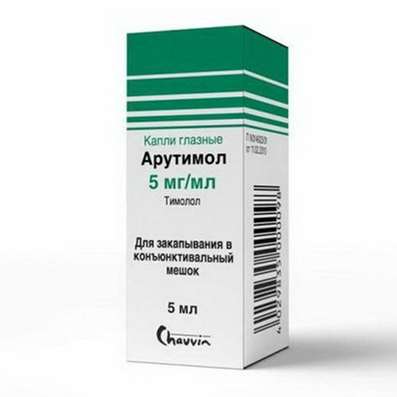Surgical treatment of type II diabetes
06 Dec 2016
Surgeon Dr. Doping tells about the relationship between diabetes and obesity, the effectiveness of bariatric surgery and the risk of food stereotypes.
Diabetes mellitus is one of the most common and life-threatening diseases in the modern era. Moreover, in the structure of the sugar diabetes Type II diabetes is currently takes about 90%. And about the same proportion of diabetes of the second type - a disease of obese people, that is combined with obesity. In general, the disease is well-known, fairly widespread and has long been a subject of scientific research and therapeutic effects by endocrinologists. They invented a number of medications: insulin, a group of drugs that are designed to reduce excess body weight and blood glucose. But here's the paradox: if we say that the diabetes of the second type - this is usually the lot of obese patients, is a prerequisite for the treatment of diabetes is weight loss. That is, obesity and diabetes of the second type - this is the disease, the development of which takes place in parallel.
If we talk about the widespread increase in the incidence of obesity, the same time we are talking about an increase in the incidence of diabetes. Today, according to experts, where some 10 million people in Russia suffer from diabetes of type II. And less than half of the diagnosed diabetes. Many people who already have the disease, but the man did not yet know this latent form of the disease. First of all, dangerous complications of diabetes. Of course, this latent, hidden within - one of the dangers of diabetes; other hazards are its complications Uncorrected, uncompensated diabetes in the foreseeable future will lead to the development of cardiovascular disease (this disease vessels of the heart, blood vessels of the brain, extremities) to lead to the development of so-called diabetic nephropathy - kidney disease, complication by kidney, and further to renal failure, blindness. A high percentage of lower limb amputation in elderly patients is associated with diabetes mellitus.
To prevent or normalize diabetes – buy Peptide complex for improving the operation of the pancreas and pancreatitis prevention, Peptides Ovagen, Cytamins Pankramin bioregulator of pancreas.
The most effective methods for the treatment of severe obesity are surgical. Obesity surgery has its origins in the 1950s, and as surgeons began to use these techniques to reduce body weight, pay attention to one detail: those patients who suffer from diabetes, sooner or later get rid of this disease. In the 1990s in the United States, a group of surgeons noticed that diabetes, for example, after surgery gastro-bypass offset by more than 80% of cases. And in this regard, he asked the question: could it be a diabetes of the second type of surgical disease if bariatric surgery has such a powerful, effective action? Since that time, our surgical techniques, and we, bariatric surgeons have turned to diabetes and began to expand the indications. If the patient is obese, even a moderate degree, but it has diabetes, we may apply the surgical effect is not only to reduce body weight but also for correction of diabetes.
And in some cases even to the 1960s in developing a new branch of obesity surgery, which gets the name "metabolic surgery". This is the surgical effects on healthy organs, the purpose of which is the impact on the course of diabetes of the second type.
If we consider the modern surgical techniques, then almost all of them one way or another contribute to the compensation of diabetes. But endocrinologists can say that any body weight reduction is good for patients suffering from Type II diabetes, but it's not just weight loss. Bariatric surgeons noticed that the compensation of diabetes after surgery comes from the first days, even before the patient reduces weight. It's not just weight reduction - there are a number of factors that are affected by the operation, the patient suffering from diabetes.
Now briefly about these factors. The first and, perhaps, the main thing in this series should be considered a forced transition to a low-calorie diet. If the patient with diabetes mellitus in a few days is on semi-starvation diet, then it usually has a normalized or substantially indicators of blood glucose decrease. And after our operations we often observed during the second week of the first absolute-normalization of blood glucose levels regardless of whether the patient is receiving hypoglycemic drugs, whether it was on insulin therapy and so on.
The next question is: what kind of operation to offer the patient if he has diabetes? The answer also becomes rather obvious, that is, more complex operations profound effect on diabetes. If, for example, gastric banding surgery - a fairly simple operation - leads to diabetes compensation less than a half percent of the cases, then, for example, such an operation as Biliopancreatic bypass surgery, according to our own data, helps to compensate for diabetes - think about this figure! - 98.6%. With a probability we can speak to the patient that he has for a large period of time (I can not say that the whole life) problems with decompensation of diabetes will not.
What's the advantage of surgical exposure? Firstly, if the patient had surgery Biliopancreatic bypass surgery, he actually does not have to comply with particularly any diets, that is with the free food, without any additional glucose-lowering therapy - just say, that the mineral support, vitamins are a must after this type of surgery. The patient need, of course, be observed, to implement the recommendations of doctors: fully fed, for example, protein food and comply with a number of recommendations that we always give, regular blood tests, that is, to control other parameters. Gastro-bypass facilitates compensation of diabetes in more than 80% of cases. Some patients even have a problem with hypoglycemic states: sugar not only normal, but even in some cases the percentage may be reduced below normal that sometimes, too, is undesirable. This specificity gastro-bypass operation. If we are talking about Biliopancreatic bypass, the hypoglycemic conditions, we almost do not see after this operation.
Not so long ago there was a decision of the International Federation of Surgery of Obesity and metabolic disorders, which is capable of performing surgery in patients with a body mass index above 30, ie it is not very stout contingent of people, if such patients have diabetes of the second type. Here there is a large scope for endocrinologists, scientists in the field of endocrinology: understand why the operation affect the course of diabetes. Several mechanisms have already been opened. The mechanism of the so-called incretin response when the intestine produces specific hormones that affect carbohydrate metabolism, and thus contributes to surgery, these hormones are normally worked out. Moreover, based on these intestinal peptide developed by a group of drugs that have proven effective in the treatment plan.
Here, of course, there are many outstanding issues that are the subject of interest for bariatric surgeons and working with us, endocrinology specialists. For example, how can we effectively help when complications of diabetes have already developed? The next question is how effectively we can help if, for example, the patient is not obese at all? And in these cases already have such jobs, there are observations, there is evidence that bariatric surgery in many cases, these patients could rectify the situation. It is important that diabetes has not reached the stage of the disease, when completely or almost completely killed beta-cells capable of producing insulin. If, for example, when pre-operative examination revealed, for example, a significant reduction of the secretory function of the pancreas, is close to zero, in which case, of course, wide effect of the operation, we can not guarantee. This whole series of questions that we need to work together.
But now it is clear that the surgical techniques that are traditionally used for the treatment of severe obesity, have proven effective in the treatment of diabetes of the second type. And it's probably important result of the work of my colleagues, bariatric surgeons. It would seem, to date, developed a large number of drugs that can lower blood glucose, insulin, including various modifications of insulin. And, apparently, across a variety of medicines spectrum is why until now we are faced with the complications of diabetes? The fact that, as in obesity, patients can not always effectively reverse their dietary patterns. It is not only medical treatment, but also in the fact that the patient should be at the same time to eat. Unfortunately, many patients with Type II diabetes, these stereotypes are simply impossible to reverse. Although there is a wide range of medicines to those patients who, in spite of the use of these drugs can not get results, we can recommend the use of surgical treatment of obesity.

 Cart
Cart





